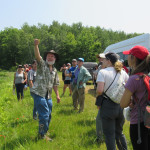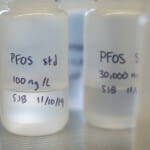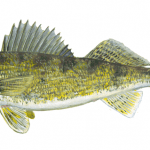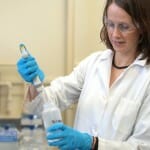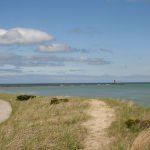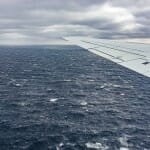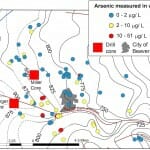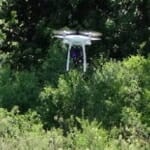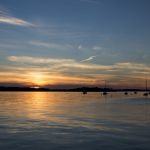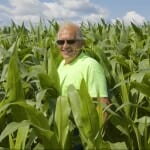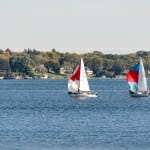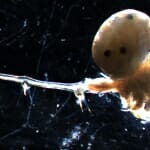Tag Water
Summer field course centers the history, culture and experiences of Native students
This year, Lac Courte Oreilles Ojibwe University hosted LA 360: Indigenous Field-Based Learning for Land Stewardship, a weeklong summer field course that interweaves Native history and culture with science education. UW–Madison will host the course in 2024.
Clearer picture of watershed quality helps people put dollar values on improvements
Researchers found that when shown a range of tangible improvements to local and distant waterways, people surveyed were willing to pay more in taxes to support some, but not all, watershed restoration efforts.
Flowing between art and science
Now in its third year, the Flow Project highlights not only the value of art as a tool to communicate science, but also as a way to inspire new science across University of Wisconsin campuses.
Northeastern Wisconsin PFAS plume moves into Green Bay via groundwater
Researchers have "fingerprinted" PFAS chemicals in the waters of Green Bay, linking them to upstream to their likely source and downstream to farm fields.
New UW–Madison research projects to benefit Great Lakes
Wisconsin Sea Grant announced 12 new two-year research projects worth $2.8 million that build Great Lakes understanding, leading to science-based management and policy decisions. Six are at UW–Madison.
An Indigenous story map experience about water
A new website created by a Wisconsin Sea Grant intern in partnership with the Great Lakes Indian Fish and Wildlife Commission details what Indigenous communities in the Upper Midwest are doing to conserve and protect water.
Ocean life helps produce clouds, but existing clouds keep new ones at bay
New research findings from the UW, NOAA and others may change the way scientists predict how cloud formation responds to changes in the oceans.
New condenser makes water from air, even in the hot sun
Unlike other radiative vapor condensers which can only operate at night, the new design works in direct sunlight and requires no energy input.
Bird’s-eye view of geology using drones offers new way to protect groundwater
Researchers at the Wisconsin Geological and Natural History Survey are spending a little less time on the ground and more time in the air — looking at the ground. What they're finding could help improve water quality.
Summer road trip finds small streams have big impacts on Great Lakes
While decades of monitoring and regulatory efforts have paid little attention to these tiny tributaries, Mooney’s research shows that they play an outsized role in feeding algae blooms and impacting coastal waters.
Virtual symposium addresses key resource during pandemic: clean water
COVID-19 may have forced the event to go virtual, but it also brought the importance of its topic into sharp focus. “You can’t wash your hands if you don’t have water,” says Water@UW–Madison's Matt Ginder-Vogel.
Climate change impacts Wisconsin’s inland lakes
The UW Water Resources Institute studied the effect on lake levels, water quality, aquatic invasive species and fisheries for 15,000 of the state's "true water treasures."
Science meets seat-of-the-tractor observations with Discovery Farms
“By the time Discovery Farms left Cashton in 2017,” says Jack Herricks, “the relationship had changed, the era of finger pointing and distrust had left. It was a pretty dramatic shift.”
Pepin County, UW–Madison team up for latest ‘UniverCity’ collaboration
UniverCity Year brings together faculty, students and members of Wisconsin communities to address local challenges through university courses and research.
New “traffic lights” warn Lake Michigan beachgoers of rip currents
The new warning system was spearheaded by Yuli Liu, a Ph.D. candidate in civil and environmental engineering. It's dubbed BLINK - Beach LIghts and Notifying Kiosk.
Forget ‘needle in a haystack.’ Try finding an invasive species in a lake.
A new study may explain why the tiny and invasive spiny water flea passed undetected in Lake Mendota, one of the most-studied lakes in the world, for a decade.

